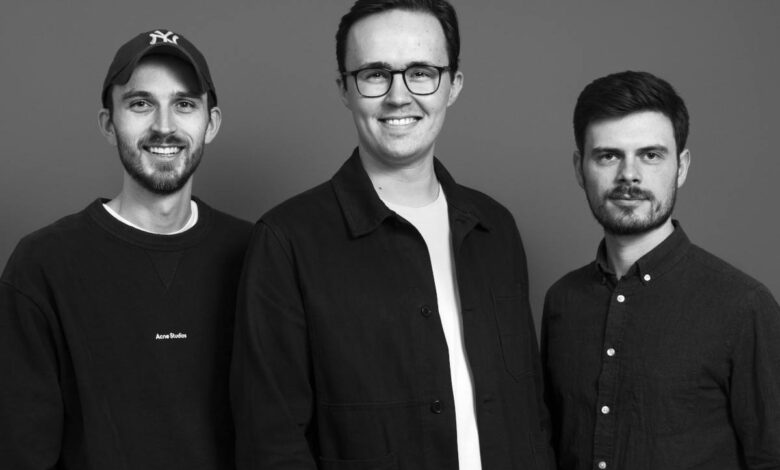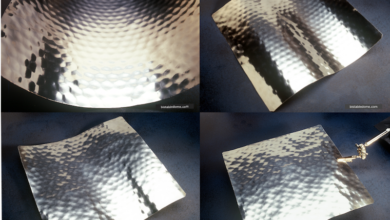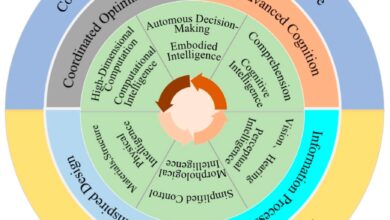Using robotics and AI to speed up lab experiments

Carl-Emil Grøn is the co-founder and CEO of one of the most exciting start-ups in Denmark. Now, with a recent funding boost and US expansion, he wants the full-stack company to start doing exactly what its name suggests.
After moving to Copenhagen to study mechanical engineering nearly 10 years ago, Carl-Emil Grøn soon found himself part of student teams building electric race cars and rockets.
While on the rocket-building team, he bumped into two talented engineers who were making small robots for the professors in the university’s biotech department. United by similar interests and passions, the three soon formed an “inseparable” bond.
Today, Grøn along with the two engineers – Magnus Madsen and Daniel Storgaard – are co-founders of one of the most exciting start-ups in Denmark: Reshape Biotech.
Headquartered in Copenhagen, the company is building a platform that makes life easier for researchers to perform lab experiments across a wide range of industries, from food supply and agriculture to even cosmetics.
“We are building a platform that can run experiments automatically,” says Grøn, who already had a bachelor’s degree in physics before moving to Copenhagen to get a second engineering one. “It has a high-resolution camera and lights to record detailed images and videos of biological experiments over time. The system then uses AI to analyse components of interest.”
The idea behind Reshape is to help R&D teams at biotech companies perform experiments more efficiently by letting robotic imaging and AI do a lot of the work. This includes helping them track visual changes in petri dishes during experiments.
“Biology is going to become the most important piece of technology over the next 50 years. Our goal is to build the hardware that makes experimentation 10x easier and help scientists get products to market faster,” says Grøn.
An accelerator for biology research
Companies that require biology research, such as those in the food, agriculture and ingredients industries, account for trillions of dollars in revenue every year, and Reshape is targeting the early stages of development within those companies. “Our ultimate goal is being the accelerator of the field, making the transition to a sustainable world much faster than we ever dreamed of.”
Unlike most start-ups, Reshape is a full-stack company, meaning it makes all its own technology from manufacturing, hardware and software development to machine learning and AI.
“The tech stack behind the product consists of the physical hardware, where we have developed our own custom imaging and lighting technology. The system also measures various fluorescent proteins, all in one system,” Grøn explains.
“The hardware is controlled and managed by our own tech stack, which sends the data to our cloud-based platform. In here, we have AI models measuring details in the physical experiments, analysing details and providing results and guidance back to our customers.”
Even though being a full-stack company is an expensive ordeal, Reshape has had a good run with investors. The Y Combinator-backed raised more than $8m a year ago in what became one of Denmark’s largest-ever seed rounds. And earlier this month, it went on to raise another $20m in an investment led by Astanor Ventures to scale its robotics technology in the US.
“We’re setting our sights on expanding our operations in the US, that will not only bring our technology to more researchers and companies, but also solidify our presence in one of the world’s most important scientific environments,” Grøn, who is CEO of the company, said when announcing the funding.
US not as fragmented as Europe
But it’s not just the money that makes a start-up successful. Grøn has great confidence in the team that has helped Reshape reach product-market fit, as the company looks to hire more global talent to join its growing team in Copenhagen.
“We have an amazing team today who’s on top of things and have air to breathe when it comes to hiring,” he says. “I believe we have one of the shortest delivery times in the industry, and we want to maintain that while the number of deployments are increasing. Growing is always a challenge, but the team at Reshape is incredibly strong and have my full confidence.”
The expansion to the US has been especially beneficial for the company. “Early in our journey we were quite focused on the Danish and European market, but it is incredibly fragmented compared to the US,” Grøn explains.
“We spent a long time thinking about how to deal with the different languages and cultures. In the end, after some amazing advice from Y Combinator we ended up shipping robot number 14 to the US. That really kick-started our sales journey and has been an important part of our strategy ever since.”
Find out how emerging tech trends are transforming tomorrow with our new podcast, Future Human: The Series. Listen now on Spotify, on Apple or wherever you get your podcasts.



